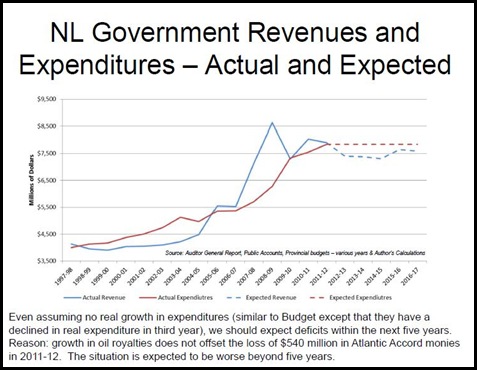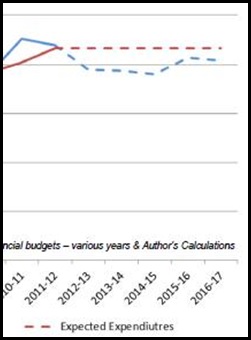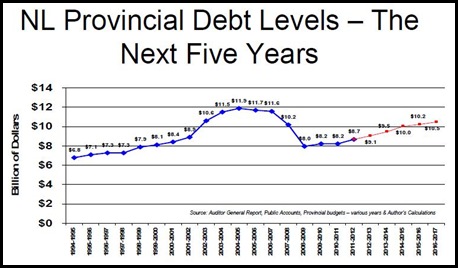There’s a Tellytorial - editorial at the Telly – that is worth reading if you missed it already.
It’s the one from last Saturday that began by noting that the Conservatives are ploughing ahead with the Muskrat Falls project because they got a mandate for it in 2007.
Missed that little gem from four years ago, didn’t you? As the Telegram notes, you surely aren’t alone.
Then there’s the bit where Premier Kathy Dunderdale says she’s confident an external “audit” and the public utilities board will back up claims that she and the Nalcor brass are making about the project. No surprise there: the audit isn’t really an audit, the utilities board has been given basically set up to deliver what Nalcor wants it to deliver and neither will examine the assumptions on which Dunderdale and her predecessor – Danny Williams – gave the green light for ramping up the public debt. The fix, as they say, is in.
But the part of the editorial likely to really make you uncomfortable is the bit where the Telegram editorialist notes that Dunderdale is full steam ahead on the megadebt project yet at the same time:
in one part of the meeting, Dunderdale said governments across the country are getting stung by all manner of projects coming in vastly over budget — often by as much as a third or a half again as much as original budgets had outlined. At the same time, she argued that a contingency plan built into the Muskrat Falls project would handle any overages, even though the contingency set aside for the project is only 15 per cent of the project’s cost.
That’s pretty much what your humble e-scribbler has been saying about these sorts of projects in other parts of the world and about the administration Dunderdale’s been a part of since 2003.
The current provincial administration is routinely over budget and behind schedule on everything it does. The latest example is a plan to build a bunch of new ferries for the provincial coastal service. Already years behind schedule, the current administration torqued everything related to the launch of the first two hulls of a planned series to update the aged fleet. Turns out, though, that the project is not only years behind schedule, it is also significantly over budget such that it is causing problems for the remainder of the program. People didn’t find this out – by the way – until human resources minister Darin King spoke to CBC’s David Cochrane last week about labour problems at the Marystown shipyard.
Flip back to the Muskrat project though.
Current estimate for the project is $6.2 billion. Increase that by 50%, the likely over-run given Dunderdale’s comments to the editorial and experience with the current Conservative administration. You are already at about $10 billion and that’s roughly the size of the provincial government’s current liabilities.
Consider, though that the estimate of $6.2 billion isn’t realistic in the first place. Nalcor and the provincial government are basically citing figures for 2011 that are exactly the same as ones first floated in the late 1990s. Put a bit of inflation on that number at you’d be at $10 billion or more as a realistic starting figure.
Now add 50% and see what you get.
Scary, isn’t it?
When you are done with that and your breathing returns to normal, notice that Kathy Dunderdale acknowledged to the Telegram editorial board that these sorts of projects tend to go over-budget by up to 50%. Your humble e-scribbler has been saying that for years. others have said the same thing.
So… the Premier and critics of the project agree on both the likelihood of over-runs and how bad they’ll be.
Then recall this Dunderdale quote from a recent speech:
May I suggest you look at the motives of the few vocal naysayers who are working so hard to find flaws in what is easily one of the most exciting developments in North America.
Maybe you should.
And while you are at it, look at Dunderdale’s motives in pushing the megadebt project despite the very obvious and massive flaws in her proposal that even she acknowledges.
If you look at both, it should be pretty easily to see who is dazed and confused and who thinks there’s a better deal waiting to be had than the one the Premier and her supporters are flogging.
- srbp -


